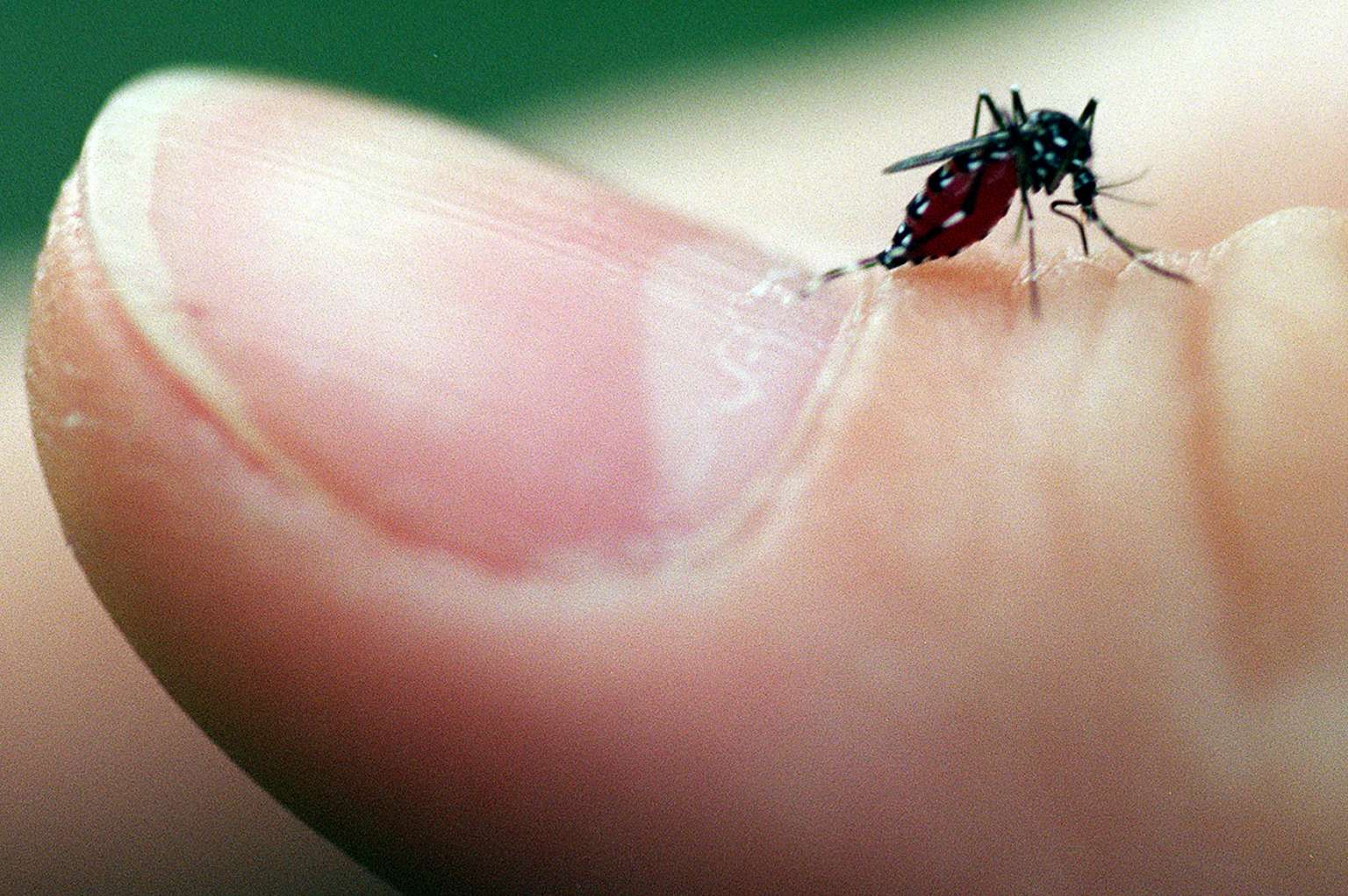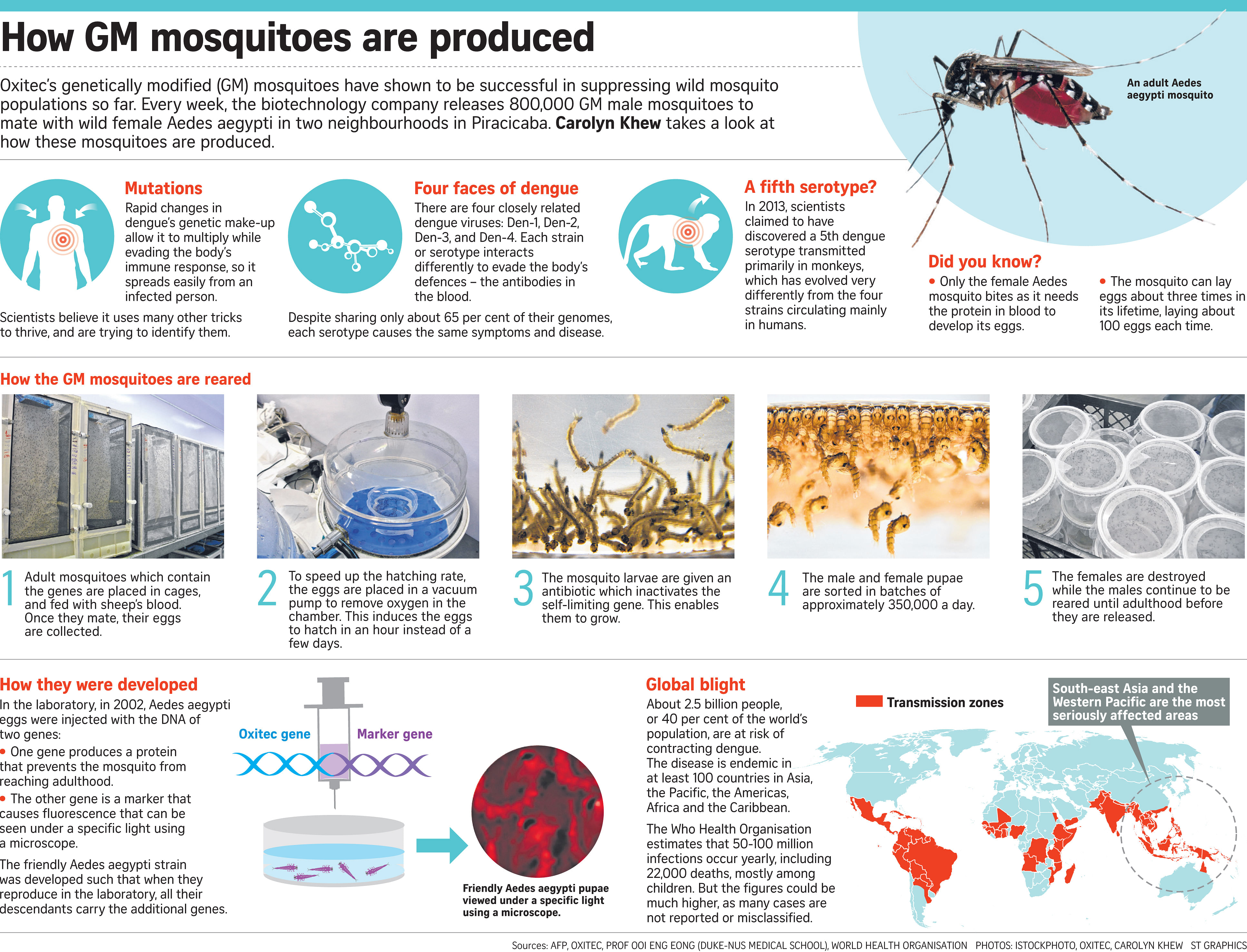Singapore studying new way to keep dengue at bay
Method uses Wolbachia-infected mozzies to breed with females, which lay eggs that do not hatch
Sign up now: Get ST's newsletters delivered to your inbox

The Aedes mosquito which transmits the dengue virus.
PHOTO: ST FILE
While experts agree that genetically modified (GM) mosquitoes could help to suppress the wild mosquito population here, questions remain as to how well this approach would work in the long run and the Government is trying out another method to keep the insects at bay.
GM mozzies have a gene which prevents them from growing to adulthood and seems to have worked well in keeping dengue in check in several cities in Brazil.
This gene, however, is silenced if the insect comes into contact with the common antibiotic tetracycline.
In Singapore, the National Environment Agency (NEA) is, for now, studying the viability of using Wolbachia-infected mosquitoes instead. This method uses male Aedes aegypti mosquitoes infected with the bacteria to mate with the female dengue-spreaders, which then produce eggs that do not hatch.
The NEA told The Straits Times that its Environmental Health Institute had previously studied the GM mosquitoes produced by Oxitec, but the results were "inconclusive".

"For the progeny from the GM cross, they are not viable provided there is no tetracycline in the environment. For the progeny from the Wolbachia cross, the eggs do not hatch because they are unable to develop in the first place," explained an NEA spokesman.
"Another key difference is that the Wolbachia-Aedes technology is based on a naturally-occurring bacteria, which is found in more than 60 per cent of insects."
Oxitec pointed out that tetracycline degrades rapidly and that studies have shown it does not occur in sufficient amounts in the environment to impact the mosquitoes.
Dengue expert Duane Gubler, epidemiologist at Duke-NUS Medical School's Programme on Emerging Infectious Diseases, said that while the GM mosquitoes have very good potential to suppress the wild mosquito population, continual release would be needed to keep the numbers low.
"The Wolbachia virus takes a longer time to establish itself in the wild population, but once it does, it makes the mosquito less susceptible to dengue, chikugunya and yellow fever," he said. He added that both methods could be used in tandem, with the GM insects helping to suppress the wild population first, before the Wolbachia-infected mosquitoes are released.
Professor Annelies Wilder-Smith, who studies infectious diseases at the Lee Kong Chian School of Medicine at Nanyang Technological University, said that Singapore is understood to have low levels of mosquito infestation - except in areas where they are hard to eliminate, such as breeding places inside homes or construction sites.
"We have been fighting dengue in the same way for the last 100 years - by destroying breeding sites and spraying insecticides. And it hasn't been working very well... We need new tools and I believe the use of GM mosquitoes brings hope."
Any method that works to control mosquitoes should be welcomed, but with GM organisms, there are concerns over the potential ecological impact and risks, noted Dr Tikki Pang, visiting professor at the Lee Kuan Yew School of Public Policy at the National University of Singapore, who was director of research policy and cooperation at the World Health Organisation from 1999 to 2012.
"The big advantage is that the Wolbachia method does not involve genetic modification and, therefore, may be more acceptable from a public perception and risk perspective," he said.


